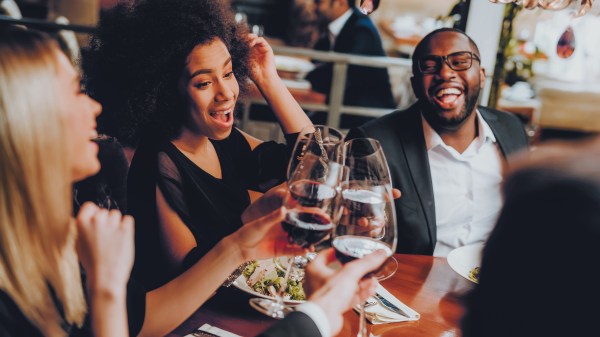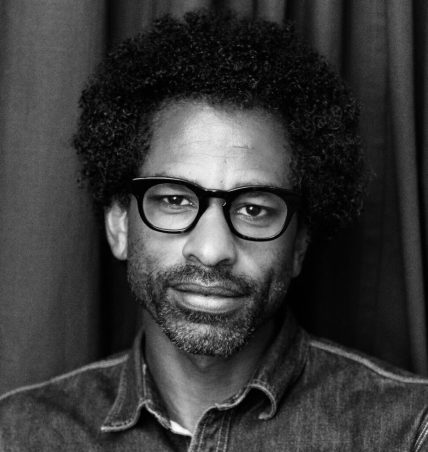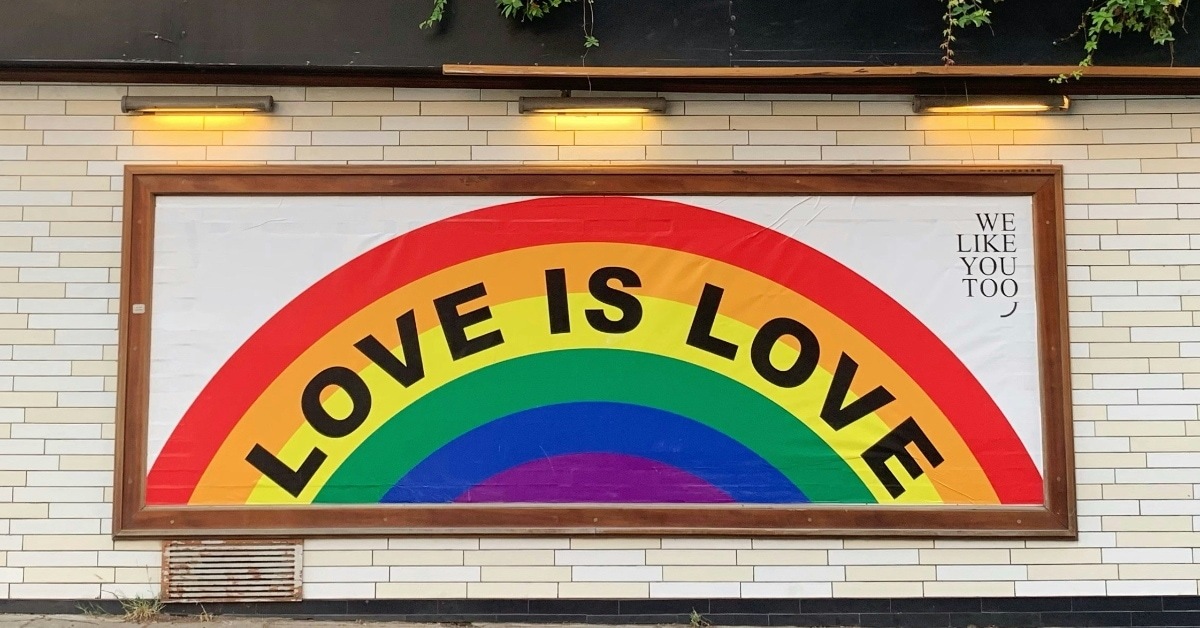Should you split the group dinner bill equally? Yes!
OPINION: Should you split the group dinner bill equally? Yes! If you argue about how to pay you will never again be invited. The post Should you split the group dinner bill equally? Yes! appeared first on TheGrio.

OPINION: Choose wisely. If you argue about how to pay the bill you may never be invited to the group dinner again.
Editor’s note: The following article is an op-ed, and the views expressed are the author’s own. Read more opinions on theGrio.
There was a TikTok video that went viral recently showing a group of Black folks in a restaurant arguing viciously about a restaurant bill. They were in a nice restaurant with a large group of diners at one table, and yet they were shocked to get a $4,600 tab. So they were in the restaurant just going at it, yelling at each other about how to divide the bill and who should pay what. All of us have faced the thorny issue of how to divide the bill for a group dinner.
Many people commented on the video saying they were not open to paying even a small share of someone else’s meal or drinks. They were going to pay for what they ordered, and that’s it. That was by far the prevailing opinion, and if you are saying “amen” because you agree with that, then this article is a must-read for you because you are 1,000% wrong and completely missing the point.
The video was a fake. It was a setup with actors. There was no $4,600 bill. But the video was triggering because many of us have been in a similar situation. Most people love big group dinners. They can be great for building or strengthening your network and your community. Eating together as a group is a crucial social ritual that helps bond people as tightly as any group activity that humans have. But they can also come with complicated moments if people’s values or expectations at odds.
Gathering for a meal is one of the easiest ways of leaping from being a stranger or an acquaintance to becoming someone a person feels they really know. You’re not just eating together, it’s more than that. I’m someone who has been attending these sorts of dinners for several decades, and I know that some of the people you meet at these dinners will become the people who will help you get a job or a promotion later. Or they might help you meet a new significant other. By going to dinner with you, they get a sense of who you are and they can go forward in the world trumpeting your charms. They can become the people who help build your positive reputation. Or they can talk about how cheap or how gross you are. How much would you pay to have a good reputation?
At these dinners, there is an expectation that each person will be a part of the group. An article from the Scientific American talked about the roots of group dinners from centuries ago. “Group meals were a social contract. They formed a social network that could be deployed in times of need… Hosting a meal meant that you could rely on labor or resources from attendees; attending a meal meant you owed something to the host. It could be labor, it could be a cup of sugar, it could be a sympathetic ear, or a hand in feeding their family at a later date. People who did not fulfill their social contracts when called upon would not be invited to subsequent feasts, and could ultimately be removed from the network through systematic non-contact.”
Take note of the sentiment at the end of that paragraph: Those who do not fulfill the social contract suggested by the group dinner will not be invited to subsequent dinners and could end up subtracted from that social network.
During the past week, I asked several grown up Black folks one question: “if someone argued about how to pay the bill what would happen?” I’m talking about people you would definitely want to have dinner with. They all said the same thing. If someone argues about how to pay the dinner tab they will never again be welcome at dinner with them. That person will have sullied their reputation and lost their chance to network through that person. Is that worth it?
Many, many people find fighting about the tab to be a friendship-ending moment. Many would also find it offensive, at a group dinner, for someone to ask for a separate check. Also, it’s gross to calculate how much each person spent. Determining each individual’s share will prevent you from receiving future dinner invitations and shows you’re missing the point of a group dinner.
When we go out to eat together, we are doing something as a group. Your ability to fit well within a group is part of what you’re there to demonstrate. If one person dominates the entire conversation, that does not make a good impression. We’re talking together as a group, and we have to make conversational space for everyone.
When the food starts coming, we do not begin eating until everyone has been served. We’re eating as a group, and that means we start eating at the same time. You don’t take advantage of your plate coming out of the kitchen before other people’s plates. Show some patience. (This rule refers to everyone at your table. If you’re at a wedding or a gala with 100 diners you don’t have to wait until everyone in the giant room has been served, just everyone at your table.)
If one plate is lagging long behind the others, then you wait for the person who hasn’t been served to give you the green light to eat. Your food will still be warm after a few moments of restraint, and your reputation will be bruised if you dig in while others are still waiting. It’s classless, and it shows that you’re focused only on yourself rather than thinking about the group and eating as a group.
The check is the same thing. We split it evenly. We came as a group. We ate as a group. We pay as a group. If you can’t commit to the ritual, then it reflects poorly on you. An article in Forbes noted “the social cost of appearing stingy or unfriendly” is quite high. Appearing to be unwilling to spend money is bad for your reputation. Forbes said, “Because the Scrooge look is not a cute one, it can be better to make everyone pay the same thing even if they didn’t order the same thing.”
Some will surely ask, “But what if someone else orders way more than I did?” I get it. I feel your pain. My wife is vegan and doesn’t really drink so when she goes out to restaurants pretty much all she eats is a salad. She always feels like splitting the bill equally makes her salad and water much more expensive than it should be. But she grins and bears it because protecting her great reputation is far more important than spending $40 dollars for a salad. The friendships she has made during years of dinners and the reputation she has built as being a good person at all the events she attends have helped propel her career and her life.
Your reputation is everything. It’s what people say about you when you’re not there. It’s based on what they saw and felt when you were in their presence as well as what they’ve heard about you. It’s critical to whether or not you get ahead in life. It’s hard to change a bad reputation. Breaking bread with people is a very important social ritual that can go a long way in shaping your reputation.
Try not to think about being unwilling to pay for more than you ate. Think of it as gaining something invaluable as a person by being there and building community with people you like. Think of it as your reputation being far more valuable than a few dollars. It’s far better to appear that you’re not worried about the money, even if you are, and protect your reputation, than having a conversation about the bill that damages your reputation and costs you far more. You can leverage a good reputation to get more money, but trying to save $50 or $100 at dinner with friends and acquaintances can’t save the damage to your reputation. If you care more about your dollars than your reputation then you will find yourself with fewer friends than you’d like.

Touré is a host and Creative Director at theGrio. He is the host of the docuseries podcast “Being Black: The ’80s.” He is also the host of the podcast “Toure Show” and the podcast docuseries “Who Was Prince?” He is the author of eight books including the Prince biography Nothing Compares 2 U and the ebook The Ivy League Counterfeiter.
TheGrio is FREE on your TV via Apple TV, Amazon Fire, Roku, and Android TV. Please download theGrio mobile apps today!
The post Should you split the group dinner bill equally? Yes! appeared first on TheGrio.












![TV Trailer: ‘All The Queen’s Men’ Season 4 [Part 2]](https://150893825.v2.pressablecdn.com/wp-content/uploads/2025/06/Trailer-All-The-Queens-Men-Season-4-tgj.png)